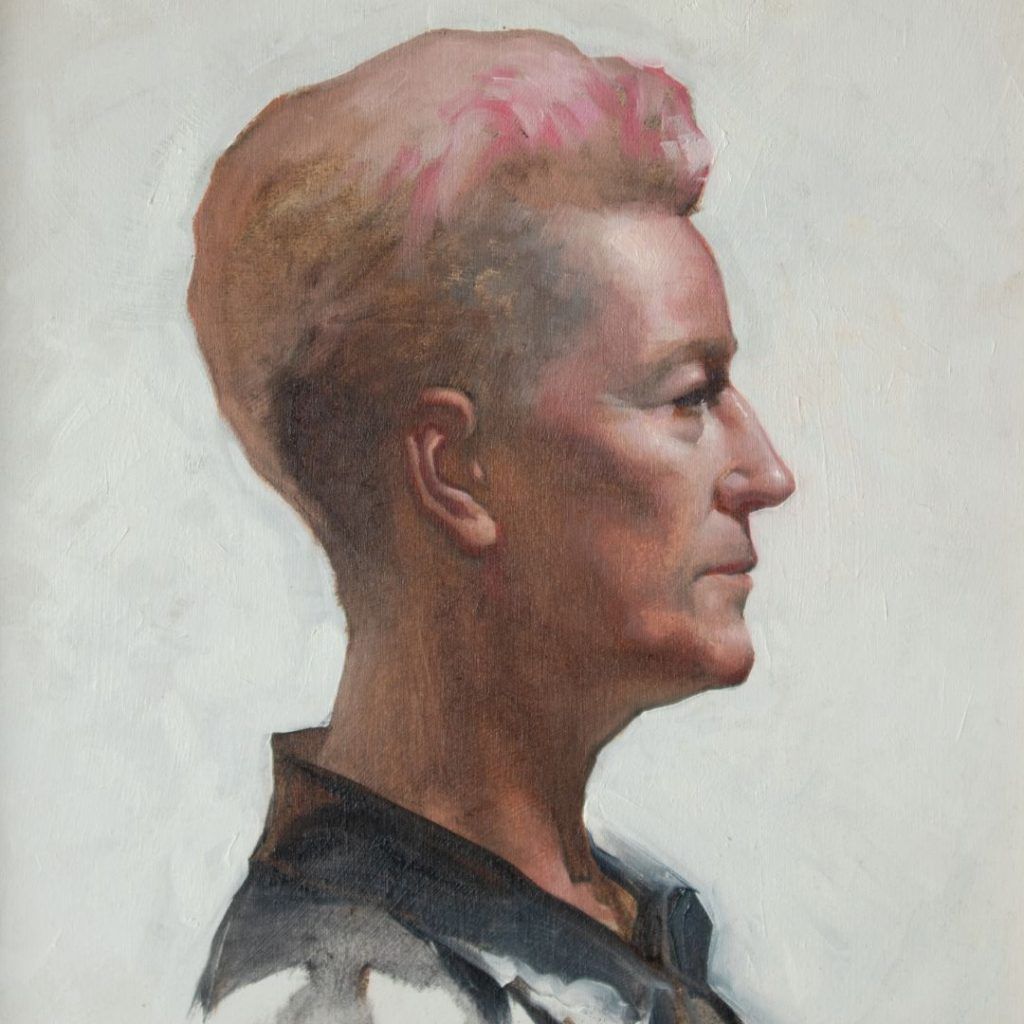An Interview with Paint Off Judge: Lizet Dingemans
Monday 29 April, 2024
As a judge, what are you looking for in a painting?
We are looking for someone who combines fantastic skill with something a little creative. For me, skills come first. Raw Umber Studios is dedicated to promoting figurative art after all!
We are looking for someone who combines fantastic skill with something a little creative. For me, skills come first. Raw Umber Studios is dedicated to promoting figurative art after all!
See more information on the Portrait Paint Off here. The deadline for entrants in 12 noon UK time, 15th May 2024.
Where did you grow up and did this influence your work?
Where did you grow up and did this influence your work?
I grew up in the Netherlands. Though the Netherlands is known for its Old Masters and is proud of that heritage, I didn't find any art schools that would teach me how to paint and draw figuratively. In fact, I got the feeling it was looked down upon by art universities there. When I tell this to my students now, I notice this is a common story among figurative artists. There seems to be a real divide between figurative and contemporary art practice. In the end, I moved to the UK to pursue my goals and have found more of a thriving figurative art scene here, which is invigorating. I do think this is changing nowadays and figurative art is once again getting more international attention. I am obviously very passionate about that, which is why we decided to do the Paint Off!
What, outside of art, has most influenced your artwork through the years?
To be completely honest, commercial and economic considerations. When I was studying, I would spend weeks on a work, from the live model. This was great for training, but it is not feasible as a working artist. I have had to teach myself to paint faster, work from imagination, etc. This has actually really helped my practice, and has made it more enjoyable too! It has allowed me to paint more freely, be more creative and experiment more with my work. I never regret the training I have though, it was invaluable.
What advice would you give to your younger self to aid you on the way?
I would tell myself not to be so critical. I did have a period where the joy of creating got lost. I would mentally beat myself up, telling myself it just was not good enough. Instead, that time was better spent learning the other skills needed to be an artist and just enjoying the process along the way! I think this feeling of wanting to push yourself is incredibly common among artists. Nowadays, I try to focus on just putting the hours in, and enjoying the process. Practice makes perfect.
Do you think a classical art education is the only way to become good at art?
Not at all. Like Harold Speed says in his book, 'The Practice and Science of Drawing', there are 2 ways to teach an artist. One is to teach, and one is not to teach. What I believe he means is that when you do teach an artist, you can start getting hesitant to be creative, but you learn all the skills. When you don't teach an artist, they will be more willing to experiment, but some never learn the skills. I think it is possible to combine the 2, but you may come at the same result from different directions. In other words, you don't need training to be a fantastic artist, but it helps!
Is there a painting that you saw in your formative years that changed everything? What was it?
For me, the artist that I admired when I was young and have continued to admire now is Gustav Klimt. The 1890 to 1910 period is my favourite period in art history. There is such a fantastic combination of skill and experimentation in that period. Looking at Klimt's work in particular, you can see the tremendous amount of craftsmanship and skill in his early work, and such a strong feeling for aesthetics as he evolved as an artist. Of course, the Kiss is the most famous work, but that is really only a small snapshot. In fact, he didn't think of himself as an artist first and foremost, instead, he was more focussed on the overall aesthetic. He was obsessed with patterns - his landscapes show this particularly well. He also designed furniture, even whole spaces to complement and strengthen his ideal aesthetic. This strong conviction is what is inspiring to me, but that alone is not enough. It is the strong work ethic, the skills he acquired before he got to that point of making his most famous work. That combination is what I strive for in my own art. I still have a long way to go, but that journey is the point. I may never arrive there, but that is ok!
Tell us about your first paid commission, and does it stand as a representation of your talent?
I did some commissions for friends before I had any kind of formal art education and of course these works were very all over the place. I am a big believer in actually teaching artistic skills, as you may have gathered frommy answer above. There are just some things, like learning how to see value, or even colour, that need to be taught. A lot of this stuff is very counterintuitive so if you are floundering about on your own you may not be able to learn to see the right things. So no, I would not say the early commissions were a representation of later work at all. It was however, a great way to explore if art was something I could do commercially.
What’s the last piece that you finished, and how do the two differ?
The way my latest pieces and my earlier pieces differ is that I have a more solid understanding now of what makes a picture. The formal education of learning to understand how light works, how values work, planes, etc. It is really all about learning to see. Seeing what is there, learning what to focus on when making a work. Learning what makes a strong design, that makes creating an art work more intuitive. I think I am guessing less at what makes a good work now.
Is making a living as an artist all you thought it would be?
Not at all! I think we all have the fantasy of just painting away in our studio and that is what being an artist is all about. Realistically, there is a lot more to it. Like all jobs in the arts, it takes enormous determination. The arts are not always taken seriously, and there is no guarantee of a steady income. You also need the discipline to show up every day and create, even if you are not always feeling inspired. Then there is the fact that even if you do make amazing work, if nobody knows about it that is not going to pay the bills. So a large part of being an artist is also networking, selling yourself and administration, and of course, entering competitions!
What is your next step in art or life?
The best thing about being an artist is that there is no time limit to greatness. A lot of the Old Masters did their best work near the end of their life. So I look forward to continuing to hone my skills, discovering new ways to create pictures and enjoying the process of seeing my art evolve as I age. It's something I look forward to!

